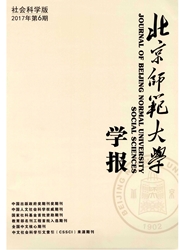

 中文摘要:
中文摘要:
改革开放以来,我国城乡教育机会不平等趋势逐步增强,城乡劳动力整体受教育水平差距的扩大阻碍了城乡一体化进程的推进。然而,教育机会只是对某一代人受教育状况的描述,在教育机会不平等的情况下,若教育流动性足够强,父代的教育机会不平等将向子代的教育机会均等演变。本文采用2012年中国家庭追踪调查(CFPS)数据,分别从城乡居民和城乡户籍双重视角对我国城乡教育代际传递特征进行了实证分析,研究发现:整体而言,父母的教育背景对子女受教育水平有显著传递效应,区别在于父亲教育背景对子女高等教育阶段的教育机会影响显著,而母亲教育背景对子女义务教育和高中阶段的教育机会影响更大。父亲教育背景对子女教育的影响并未有显著的城乡差异,但是母亲教育背景对子女教育影响呈现显著的城乡差异。从城乡居民视角分析,城镇地区母亲学历对子女完成义务教育具有显著正影响;从城乡户籍视角来看,母亲教育背景对农村户口子女的小学入学机会影响更大,而对城镇户口子女的大学入学机会影响更大。上述结果表明,我国高等教育资源应当进一步向农村地区和农村户口受教育者倾斜,增强教育代际流动性;同时,在义务教育阶段消除性别之间的教育机会不平等将有利于在长期内确保义务教育的全面普及。
 英文摘要:
英文摘要:
Using the CFPS 2012 survey data,this paper carries on an empirical analysis on the characteristics of?intergenerational transmission of education in the perspective of urban-rural difference.The results show that the overall parents' educational background has a significant effect on their children' s level of education.However,father' s educational background effects children' s educational opportunity in the higher education degree,while mother' s educational background effects children' s educational opportunity in compulsory education and senior secondary school stage.From the perspective of urban-rural difference,father' s education background has no significant difference on children' s education,but it is not the same to the mother' s situation.For the residents living in urban areas,the mother' s educational background has a significant effect on children' s education opportunity in junior middle school stage.From the perspective of registered permanent residence(RPR)system,mother' s education background has more effect on children' s education in primary school stage for those with rural RPR,but more effect in higher education stage for those with the urban RPR.It follows higher education resources should be invested increasingly to rural area and the students with the rural RPR,which enhances the intergenerational education mobility.Meanwhile,eliminating compulsory education opportunity inequality of gender would ensure the compulsory education overall popularization in the long run.
 同期刊论文项目
同期刊论文项目
 同项目期刊论文
同项目期刊论文
 期刊信息
期刊信息
